
Candida Martinelli's Italophile Site

Main
Page This family-friendly site celebrates Italian culture for the enjoyment of children and
adults. Site-Overview
Totó, the most famous Italian comic actor, an icon No Italian can forget Toto's Pinocchio Here's a famous scene, the spaghetti scene, from the 1954 film,
directed by Mario Mattoli, 'Miseria e nobilita' (Poverty and Nobility).
Click on the arrow to play the scene (sometimes it needs two clicks), stored at
YouTube.com. This beautiful clip shows how Italy took the news of
Totó's death in 1967. He was called 'l'ultima maschera
della commedia dell'arte' (the last mask-character from the commedia
dell'arte tradition). The last line talks about how today's young
Italians quote his routines and hang his poster next to their favorite
rock stars. Roberto Benigni being Roberto Benigni. His comic routines
are 'events' on Italian television, often the feature of the end of year
programming, the show no one misses. Benigni rants for hours about
the absurdities of modern life, to the joy of what seems the entire
country.
Ugo Tognazzi starred in Mario Monicelli's hit
comedy "Amici miei" in 1975, and in Eduoard Molinaro's
French/Italian co-production "La cage aux folles" in
1978. This scene from 'Amici miei' has entered into Italian comic cinema
history. Two recent photos of Beppe Grillo, who has made a career ranting
about the absurdities of modern life. He's still ranting
about everything; a recent quote: "I'm not pessimistic about
Europe; I'm apocalyptic. My hope is that we go toward catastrophe, but
with optimism." Beppe recently went to rant at the European Parliament, citing the
facts about Italian politics, reducing the chamber to laughter and
tears. No jokes, just the sad truths. Monica Vitti, sometimes called Italy's Barbra
Streisand, and you can see why in this photo This clip is of the wonderful Monica Vitti from the 1982 film ' Scusa
se e' poco', with Ugo Tognazzi as her husband, who she is about to give
a pair of horns (to cheat on him). Alberto Sordi, nickname Albertone, in Nanni Loy's
"Detenuto in attesa di giudizio" from 1971, proving he was not
only a great comic actor but a dramatic actor as well. Alberto Sordi in Mario Monicelli's Il Marchese del
Grillo from 1981 Alberto Sordi receiving a special Donatello Award
(an Italian film award) from Sophia Loren A love of wordplay goes hand in hand with a love of poetry.
Part of the amazing talent of Toto' was his poetry writing, and lyric
and musical compositions. He is as admired for his acting skills,
but he is worshiped for his songs and poetry. This clip is from the 1955 film 'Siamo uomini o caporali?' called
'Core analfabeta' (Illiterate heart). Pocket book collections of Altan's Cipputi Vignette
A rare photo of cartoonist Altan, full name
Francesco Tullio Altan
The first civil servant says: "And if
they pass a law that says we have to do work?" The second
civil servant says: "I'll become a conscientious
objector." Click on the cartoon to enjoy more Altan cartoons. Totó in Mario Monicelli's "I soliti
ignoti" (Big Deal on Madonna Street) 1958 "I soliti ignoti" breaking through the
wrong wall at the end "I soliti ignoti" making due with what
they find, "si arrangiano"
Here's the scene in full from YouTube.
Physical
Comedy and Stock Characters Vignette
- Cartoons - Altan and Cipputi A study in Britain showed that the higher one's education the more
irony was appreciated. Lower educated British preferred physical
humor and puns. Italy is different from Britain, and other places,
in this as with so
many other things. All Italians I met appreciated physical humor,
puns, and irony. Irony more than anything else! Totó is the icon
of Italian comedy. He was in 108 films, wrote 5 of them, composed
the music for 4 of them, was a poet, and a writer and composer for
numerous stage variety shows. Totó also dubbed the voice for Danny
Kaye in all his films released in Italy. He met Danny Kaye once in a Roman nightclub where
they proceeded to entertain the crowd with an improvised pantomime
routine that lasted several hilarious minutes. They were both
masters of physical humor, and easily able to entertain the mixed
language audience without speaking a single word. Totó in Mario Mattoli's "Miseria e
nobiltá" (Poverty and Nobility) from 1954 There is an
incredible site dedicated to Totó full of information, quotes,
and a wonderful biography. It is all in Italian, but if you
can read Italian, it is worth a visit. Click here
to go to the opening page of Totó's site. The most appreciated humor in Italy is that which points out the
absurdities and ironies of daily life. For this reason, Italian
humor is grounded in reality. Italian comic characters are eccentric,
but not exaggerated. This link to reality helps make Italian humor and
Italian comic characters more poignant. It also makes Italian
comedies a mixture of tragic and comedic in what I have
recently heard called "dramadies". Others call them
"tragi- comedies". Recurring themes in Italian comedies of the past were hunger,
poverty, misery, old age, sickness, and death. Roberto Benigni's
film comedy Life is Beautiful, set in a Nazi concentration camp,
is just one in a long line of Italian comedies that seek to point out
the ironic absurdities in tragedy. Roberto Benigni's "Life is Beautiful"
from 1997 Modern Italian comedies tend to focus on the absurdities of modern
life and how removed it can be from the reality of humanity. The
gap between the perfect technological world we try to create around us,
and the flawed human beings that we remain and always will remain, is a
recurring theme. Real life ends most often in failure or tragedy or reduced
expectations because we are never as wonderful or talented or lucky as we want to
believe we are. That gap between who we think we are and what we
really are is another recurring theme in Italian comedies. Also,
the art of adapting to one's circumstances, or l'arte d'arrangiarsi,
is valued very highly in Italy, and shows up again and again at the end
of Italian comedies, as the characters accept their failings and just
get on with life. This link to reality helps explain why Italian comedies rarely have
happy endings. The romantic film comedies so popular in
English-speaking countries and in Germany (for some reason), are not as
popular in Italy. They are seen as too unrealistic to be truly
funny. They are fantasies peopled with unrealistic human
beings. Social criticism and commentary are integral to Italian comedy in all
it's forms. The goal of comics in Italy is generally to consider
the reality around them from their comic perspective and then
communicate this to their audience. I watched a Ligurian-Italian comic, Beppe Grillo, on TV one evening
as he had the audience in tears from laughter by simply reading a list of
accidents from the previous year at Italian nuclear power plants.
The audience was not laughing at the near nuclear meltdowns. They
were laughing at the absurdity of humankind thinking that just because
we discovered the power that created our universe, we assumed we were
capable of controlling it and using it safely. Accident after accident that he read off the official report showed
how wrong we were. Each accident was caused by a "human
error" that was only too human. Each person listening could easily
see themselves doing something similar in a bad moment. This was
long before Homer Simpson, of The Simpsons TV cartoon, was invented and placed behind a control board
at a nuclear power plant, pointing out just the same
thing. And in every performance the physical aspect of life and the
character is as much a part of the performance as the dialogue. Most
Italian actors receive stage training so they are adept at using their
bodies to express emotion and to create comedic moments. The Rowen
Atkinsons and Jim Carreys that we find so rare are ten a penny in
Italy. For this reason, most shots in Italian film comedies are
medium shots or long shots, rather than close-ups. Close-ups are
reserved for communicating dramatic emotions. Italian comedy continues the traditions of Commedia dell'arte
and Greek and Roman theatre in the use of archetypal characters, or stock comic
characters. They people the supporting roles so the audience can relate to them
immediately without any long introductions. This use of many stock characters is the reason the Italian comic
star is rarely the sole comic character in any work. He or she
(Monica Vitti comes to mind as a wonderful Italian comic, and dramatic, actress) is
surrounded by other comic actors well known to the Italian public, often
playing the same characters again and again. Monica Vitti, who went from acting to teaching
acting, specifically comic acting at an academy in Rome Together, the main comic and the stable of supporting comic actors
create an ensemble piece celebrating many comic types easily
recognizable to an Italian audience. In films and TV shows, group
shots are favored so each character can react simultaneously to the
events taking place, just as if they were performing on a stage, or as
if it were happening in real life before passers-by on the street.
Italian neo-realism is not dead, it has just lost it's sharp edges and
has worked it's way into every production. Probably in second place in the Italian comedy pantheon, just after Totó, is
Alberto Sordi. He was in 149 films, wrote 39 of them, and
directed 18. He began his career by dubbing films, providing the
voice for Oliver Hardy in his films released in Italy. There is an official site that
is just as creative as the man was. To go to the opening page,
click here. This site is in Italian only, so if you can read Italian,
there's a lot to enjoy. The dialogues in Italian comedy can be manic, but they are about real
situations and real emotions, not fantasies. There are lots of
plays on words, and joy is taken in combining and contrasting dialects with
standard Italian. The voices of the various actors are generally very expressive and
entertaining in their own right. This isn't surprising since most
Italian actors study dubbing others in films as part of their acting
training. I completely missed a play on an Italian expression in a famous film
comedy, Mario Monicelli's Il Marchese del Grillo, starring
Alberto Sordi, from 1981. The Marquise, played by Sordi, falls
down a flight of stairs. Someone approaches and asks what
happened. He's told that the Marchese é caduto (the
Marquise fell down). The audience roared with laughter and the
group of all male students I was with were laughing all the way home
about that line, but they refused to explain it to me, insisting I had
to ask a woman to explain it. I understood what they meant when I
found a woman and explained to her the scene in the film. After
she finally stopped laughing, she told me it was an Italian expression
meaning a woman's menstruation had begun! Verbal interplay is so vital to Italian comedy that every website
dedicated to comic stars features sections recording verbatim their most
famous dialogues. These are memorized by many young Italian males and
recited over and over again when they spend any length of time
together. It is something of a rite of passage to be able to
recite certain scenes from certain films. Italians don't laugh easily at themselves and don't like to be the
butt of jokes. However they do appreciate jokes about life in
general, and about politics in particular. This is what is behind the long
Italian comic tradition of the political cartoon, or vignetta.
To this day, one appears on the front page of the newspaper La
Corriere della Sera, that almost always virulently attacks the
government for some recent move or lack of movement. The cartoons
are not laugh-out-loud funny, but instead provoke a recognition of the
ridiculousness or futility of our arrogant attempts to control the world
around us. Hubris is a favorite target of the Italian
cartoonist, which probably explains why the Silvio Berlusconi is such
a favorite target. Altan is a famous Italian creator of vignette and fumetti,
cartoons and comic strips. One of his more memorable characters is
Cipputi, a died-in-the-wool communist factory worker who is continually
dreaming of the day the worker's revolution will transform Italy.
I have several collections of Altan's cartoons, given to me by an
Italian friend who insisted that if I could understand Altan's humor, I
could then claim to understand Italians and Italy. I don't know if
that is true, that guy was pretty full of it, but I can appreciate
Altan's humor, to a certain extent.
I've put together a page with
more information about Altan and some of his cartoons with English
translations. If you're interested in viewing that page, click
here.
A classic example of all these points on Italian comedy is Mario
Monicelli's 1958 film I soliti ignoti (The Big Deal on Madonna
Street).
The film is about a hapless group of petty criminals who
want to make a big score. They are doomed from the beginning by
their own incompetence, but their basic humanity and the desire to make
it big to escape the poverty in which they live endears them to the
audience.
When in the end, after all their preparations, they
break through the wrong wall and find not a safe loaded with wealth, but
instead a refrigerator containing a bowl of pasta with beans, they
accept their defeat and make do.
They sit down around the table
and eat the pasta, commenting on the cooking skills of the woman who
made it, and arguing about what ingredients it's lacking.

Humor
in Italy and Italian Comic Icons
![]()
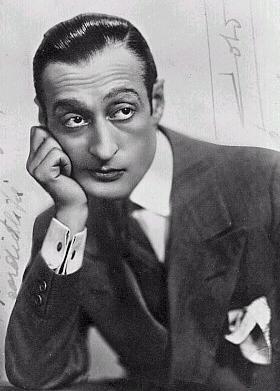
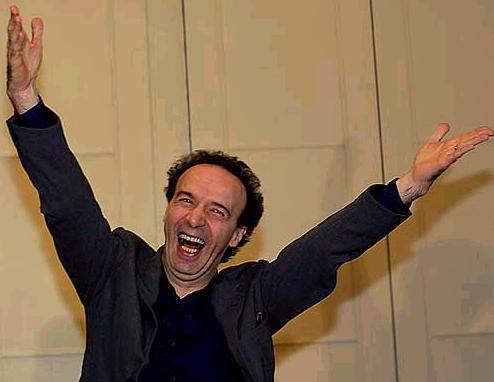

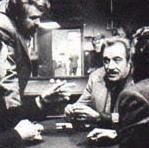
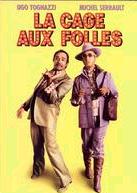



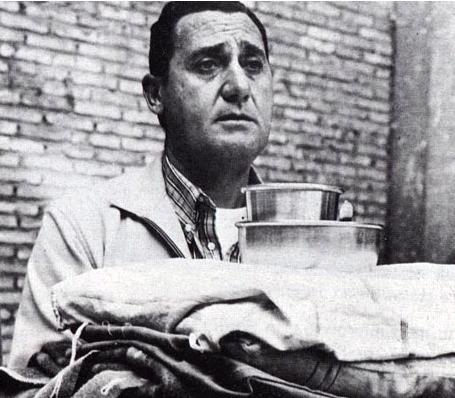
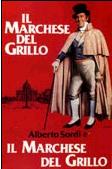
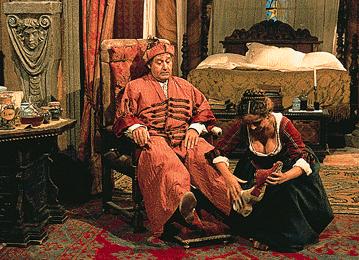
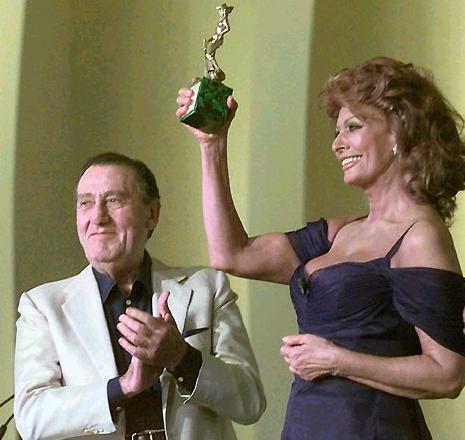
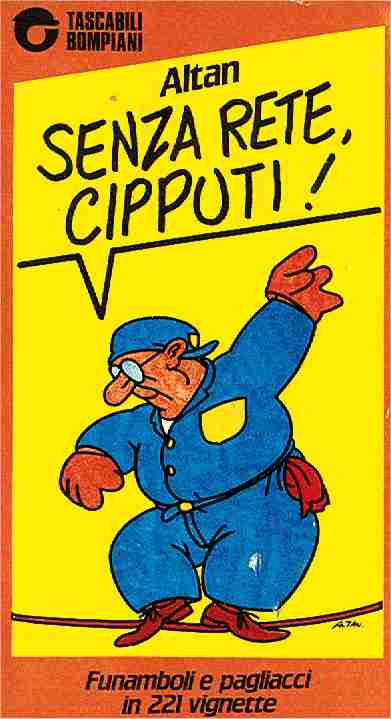
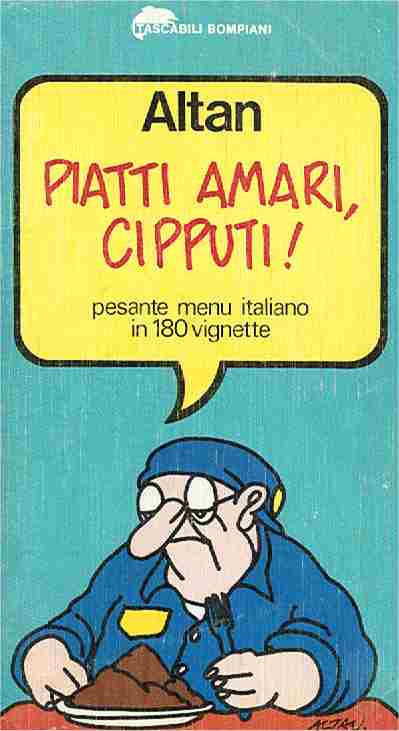
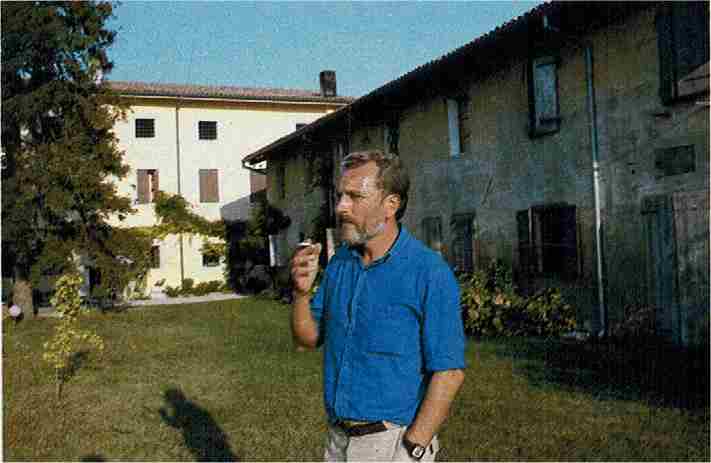
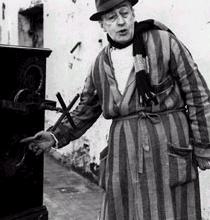

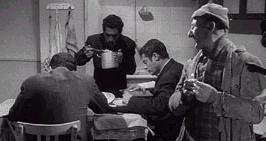
Introduction
Totó
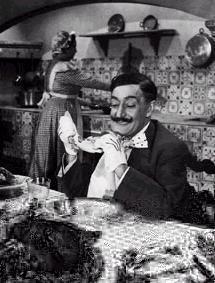
Grounded in Reality
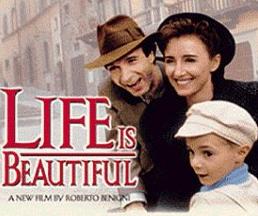
Social Commentary
Physical Comedy and
Stock Characters
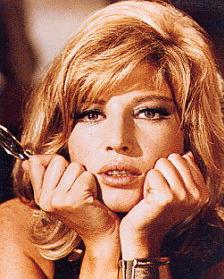
Alberto Sordi
Wordplay
Vignette - Cartoons
Conclusion



